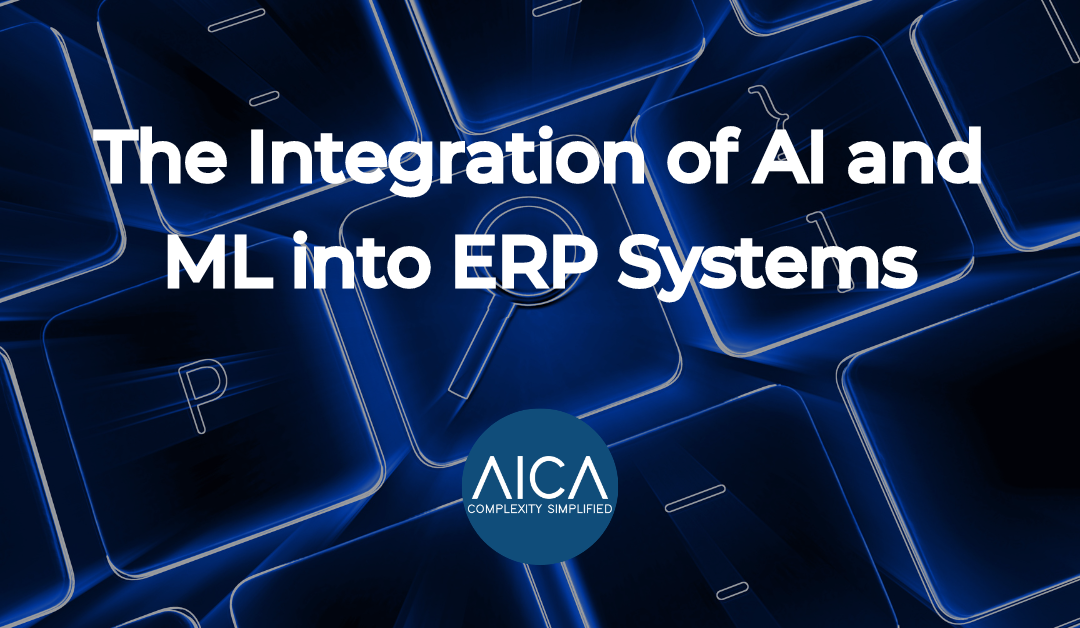Enterprise Resource Planning (ERP) systems stand at the forefront of innovation, particularly with the integration of Artificial Intelligence and Machine Learning technologies.
As businesses seek to further harness the power of their product data, leading ERP system vendors are pioneering the incorporation of AI and ML to redefine how product data is managed, analysed, and utilised.
This article delves into the current state of AI and ML integration within these platforms, exploring the transformative benefits and potential future impacts on the industry.
The Rise of AI and ML in ERP Systems
AI and ML technologies are increasingly becoming integral to enhancing the capabilities of ERP systems. These technologies offer sophisticated algorithms and data processing capabilities that can automate complex tasks, provide predictive insights, and personalise user experiences at scale. Among the frontrunners, SAP, Oracle, Sage , Acumatica and Microsoft Dynamics 365 have each embarked on unique paths to embed AI and ML into their ERP solutions.
Developers can leverage SAP’s diverse range of tools and APIs to infuse their applications with AI capabilities. The SAP Leonardo Machine Learning Foundation stands out by offering a dedicated environment for crafting and deploying machine learning models.
With Oracle Cloud Infrastructure (OCI), users gain access to a suite of services designed for the creation and deployment of generative AI models. Oracle’s AI Infrastructure further simplifies the process by offering a managed service focused on the training and deployment of machine learning models.
Sage provides APIs that facilitate the integration of generative AI models into its ecosystem. A prime example is the Sage Intacct API, which not only enables developers to engage with and modify data within Sage Intacct but also supports the training and deployment of AI.
Acumatica introduces a versatile low-code platform that streamlines the creation of custom integrations with AI models. In addition, it features an array of pre-built connectors, simplifying the process of linking with renowned AI platforms.
Microsoft Dynamics 365 enhances application capabilities with its array of pre-built connectors, designed for seamless integration. The Dynamics 365 AI Builder connector is particularly notable, offering developers a gateway to a broad range of AI services, including those involving generative AI models.
Key Benefits of AI and ML Integration in PDM Systems
The integration of AI and ML into ERP systems brings many advantages:
Automation
AI and ML can automate routine data management tasks, freeing up human resources to focus on more strategic activities.
Data Quality
Intelligent algorithms help maintain high data accuracy and consistency, reducing errors and improving the reliability of product information.
Predictive Insights
ML models can analyse vast amounts of data to forecast trends, predict customer preferences, and inform product development strategies.
Personalisation
AI enables the customisation of product information and recommendations, enhancing the customer experience and potentially boosting sales.
AICA: Your AI Integration Solution
AICA is a pioneering SaaS solution designed to address the complexities of modern ERP systems.
Leveraging our cutting-edge AI and ML technologies, we offer a comprehensive suite of tools that promise to streamline, enhance, and transform the way businesses manage and clean their product data. Our proprietary algorithms are tailored to automate routine tasks, enrich data with valuable insights, and ensure the highest levels of accuracy and consistency across your product databases.
Our Services Include
– Cleansing: Our ML algorithms can sift through vast amounts of product data, identifying and correcting inaccuracies, removing duplicates, and ensuring data quality is maintained at all times.
– Enrichment: We enhance your datasets by adding valuable attributes, descriptions and classification, therefore maintaining customer and operational efficiency.
– Comparison: Our technology enables businesses to compare product data across different systems or databases, highlighting discrepancies and ensuring uniformity and consistency.
– Creation: Beyond cleansing and enrichment, AICA can generate new product data, such as SKU numbers and new products’ attributes.
Future Implications and Trends
The future of ERP systems is intrinsically linked with the integration of AI and ML technologies like AICA. We can anticipate more integrations that not only enhance data management but also contribute to innovative product design and development.
The trend towards generative AI could revolutionise product customisation and creation, offering unprecedented opportunities for businesses to differentiate themselves in the market.
Conclusion
The integration of AI and ML into ERP systems is a pivotal development that is reshaping the landscape of product data management. The journey toward fully realised AI and ML integration in ERP systems is an exciting prospect, promising a future where businesses can navigate the complexities of product data with unparalleled ease and insight.
To find out more about AICA’s services – visit our website here.
Copyright Reserved © AICA Data International Ltd 2023

